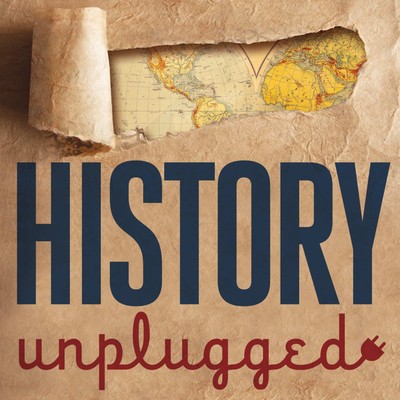
History Unplugged Podcast
Scott RankAge of Discovery 2.0, Part 5: Death Has Always Been an Inevitable Part of Discovery, Whether on Magellan’s Voyage or a Trip to Mars
November 16, 2021 ● 43 minShare this episode
To talk about the need for accepting risk in the name of discovery – whether during Magellan’s voyage in which 90 percent of the crew died or in the colonization of Mars – is aerospace engineer and science writer Rand Simberg, author of Safe Is Not An Option: Overcoming The Futile Obsession With Getting Everyone Back Alive That Is Killing Our Expansion Into Space.
For decades since the end of Apollo, human spaceflight has been very expensive and relatively rare (about 500 people total, with a death rate of about 4%), largely because of this risk aversion on the part of the federal government and culture. From the Space Shuttle, to the International Space Station, the new commercial crew program to deliver astronauts to it, and the regulatory approach for commercial spaceflight providers, our attitude toward safety has been fundamentally irrational, expensive and even dangerous, while generating minimal accomplishment for maximal cost.
Rand explains why this means that we must regulate passenger safety in the new commercial spaceflight industry with a lighter hand than many might instinctively prefer, that NASA must more carefully evaluate rewards from a planned mission to rationally determine how much should be spent to avoid the loss of participants, and that Congress must stop insisting that safety is the highest priority, for such insistence is an eloquent testament to how unimportant they and the nation consider the opening of this new frontier.
Can you talk about the dangers of voyages in the Age of Discover, namely Magellan? Marco Polo walking through mountain passes and suffering cold, diseases, and the threat of starvation. Ibn Battuta getting shipwrecked numerous times. Attacked by pirates.
Captain Cook was elected a member of theroyal society in 1775, for his geographic discoveries, but also determining a prevention for scurvey.
[leeding gums which turn blue-ish purple and feel spongy
bulging eye balls
corkscrew hair (only in non-infantile scurvy), particularly noticeable on your arms and legs
loosened teeth which will eventually fall out in the advanced stages of scurvy
fever
swollen legs, particularly swelling over the long bones of your body
1.Are there any particular stories of exploration from history that resonate with you and serve as a model of balancing safety with risk-taking? If so, why?
2.Walk us through the dangers of the early Space Age. There are notable tragedies, such as Apollo 1, and many failures of the Soviet Space Program, but overall, what was the risk level in the Mercury, Gemini, and Apollo programs?
3.Take us to the present day. What is the ISS’s approach to safety?
4.In what ways is American society far less risk-tolerant, and what do you think brought about this change from the 1960s?
5.Future space flights that are privately funded will be given far wider berth on risk than a manned NASA flight. Walk us through your “actuarial table” of balancing risk identification, mitigation, and overall cost.
6.Overall, how do you think we should understand safety when it comes to human exploration of space?
See omnystudio.com/listener for privacy information.
Today's Devotional
A Prayer to Lead Us to the Manger - Your Daily Prayer - December 14
Read Today's DevotionalTop Artists
Top Music Videos

toby mac TobyMac Drops ‘a Lil Church’ Official Lyric Video

Anne Wilson Anne Wilson Releases ‘Til the Road Runs Out’ Lyric Video
![Gaither Vocal Band - Mary, Did You Know? [Live]](https://i.swncdn.com/cdn/160w/godtube/2012/08/31/413405-004.jpg)
Gaither Vocal Band Gaither Vocal Band - Mary, Did You Know? [Live]

chris rupp Beautiful 'O Come All Ye Faithful' Cypress Fyre A Cappella Cover

Anne Wilson Anne Wilson's 'God Story' Lyric Video Inspires and Uplifts with Every Line










